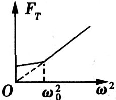Human relations have commanded people’s attention from early times. The ways of people have been recorded in innumerable myths, folktales, novels, poems, plays, and popular or philosophical essays. Although the full significance of a human relationship may not be directly evident, the complexity of feelings and actions that can be understood at a glance is surprisingly great. For this reason psychology holds a unique position among the sciences.
" Intuitive " knowledge may be remarkably penetrating and can significantly help us understand human behavior whereas in the physical sciences such common sense knowledge is relatively primitive. If we erased all knowledge of scientific physics from our world, not only would we not have cars and television sets, we might even find that the ordinary person was unable to cope with the fundamental mechanical problems of pulleys and levers. On the other hand, if we removed all knowledge of scientific psychology from our world, problems in interpersonal relations might easily be coped with and solved much as before. We would still " know " how to avoid doing something asked of us and how to get someone to agree with us: we would still " know " when someone was angry and when someone was pleased. One could even offer sensible explanations for the " whys " of much of the self’s behavior and feelings. In other words, the ordinary person has a great and profound understanding of the self and of other people which though unformulated or only vaguely conceived, enables one to interact with others in more or less adaptive ways. Kohler in referring to the lack of great discoveries in psychology as compared with physics, accounts for this by saying that " people were acquainted with practically all territories of mental life a long time before the founding of scientific psychology. "
Paradoxically, with all this natural, intuitive, commonsense capacity to grasp human relations, the science of human relations had been one of the last to develop. Different explanations of this paradox have been suggested. One is that science would destroy the vain and pleasing illusions people have about themselves; but we might ask why people have always loved to read pessimistic, debunking writings, from Ecclesiastes to Freud. It has also been proposed that just because we know so much about people intuitively, there has been less incentive for studying them scientifically: why should one develop a theory, carry out systematic observations, or make predictions about the obvious In any case, the field of human relations, with its vast literary documentation but meager scientific treatment, is in great contrast to the field of physics in which there are relatively few nonscientific books.
The author uses Ecclesiastes and Freud(Line 4, Para. 3)as examples in order to()
A. find a satisfactory explanation to the human relations in their books
B. show the growing tendency to ignore scientific explanations of human relations
C. challenge the first analysis on the underdevelopment of the science of human relations
D. prove the unwillingness of people to abandon the pleasing fantasy in their mind





